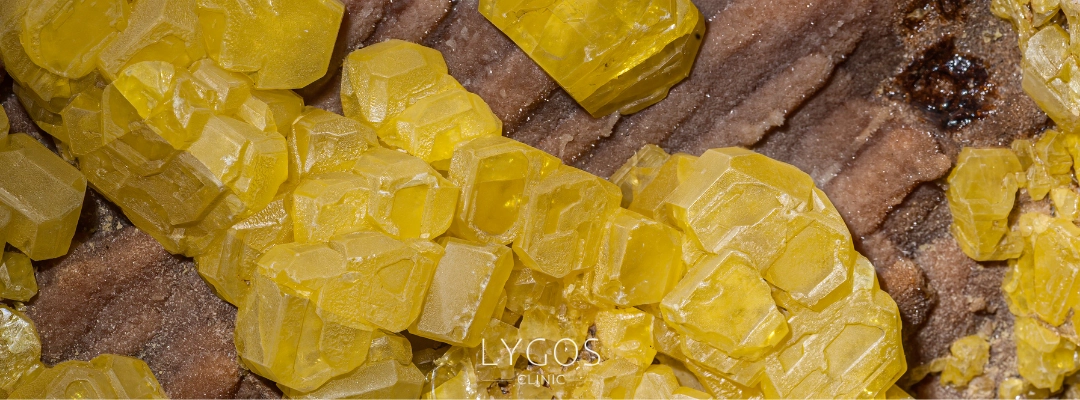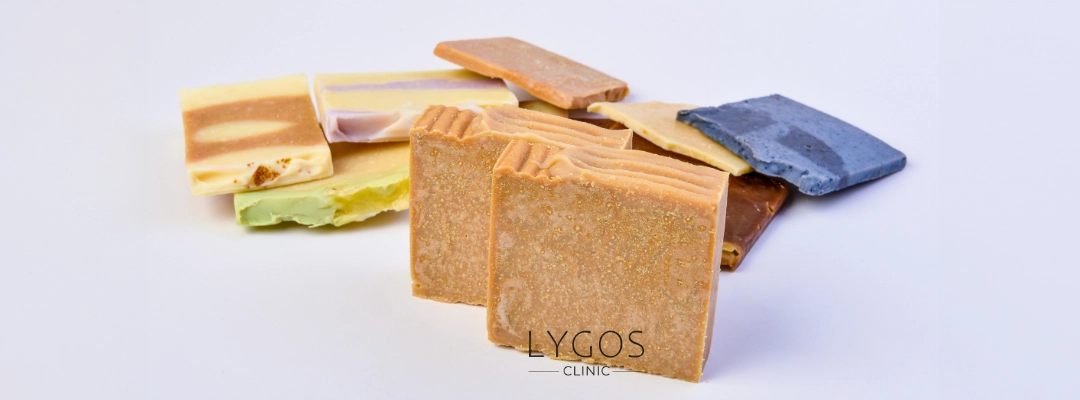What is Sulfur? | Uses of Sulfur | Sulfur Soap | LYGOS 2025

Sulfur: Benefits and Using Method
Sulfur (sulfur) is an element commonly found in nature and has important functions in the body. Sulfur, which is one of the cornerstones of proteins by taking part in the structure of amino acids, plays an important role especially in skin health. It can help prevent skin problems such as eczema and acne.
It also contributes to the production of antioxidants in the body and works effectively in removing toxins. Sulfur is also found in the keratin structure, which plays a critical role in strengthening hair and nails. It provides many benefits to the body by being abundant in foods such as garlic, onion, broccoli, cabbage, cauliflower and brussels sprouts. So, what is sulfur? What are the benefits of sulfur? You can find what you wonder in our article.
What is Sulfur?

Sulfur is an important mineral that performs many vital functions in the body. In addition to being involved in DNA repair, it helps protect cells by reducing inflammation caused by oxidative stress. Sulfur is also essential for the body to produce and recycle glutathione, a powerful antioxidant. This mineral, which also provides positive effects on skin, hair, joint and liver health, contributes to the prevention of skin problems such as acne and eczema.
At the same time, it supports the body’s natural detox process by facilitating the cleansing of the liver from toxins. Sulfur, which is also important for joint health, can be effective in the treatment of joint disorders such as arthritis by reducing inflammation. Sulfur-rich foods include garlic, onions, broccoli, cabbage, cauliflower and brussels sprouts.
What is Sulfur Good for?

Sulfur, or sulphur, is a mineral with many vital functions in the body. From connective tissues to enzymes, hormones to powerful antioxidants, sulfur plays an important role in the formation of many structures and provides many health benefits. So, what does sulfur do?
Supports skin health: Sulfur helps heal the skin by fighting skin problems such as acne, eczema and psoriasis. Thanks to its antibacterial and antifungal properties, it keeps the skin clean, thus reducing the risk of infection.
Strengthens hair and nails: Sulfur, which is part of the keratin protein, contributes to the strengthening of hair and nails. It reduces hair loss and supports healthy growth. It also prevents nails from breaking and increases their durability.
Accelerates the detoxification process: Detoxification is the process of cleansing the body of harmful toxins and sulfur plays an important role in this process. It is involved in the production of glutathione, one of the powerful antioxidants, and helps the liver to effectively break down toxins and remove them from the body.
Relieves joint and muscle pain: Sulfur has a healing effect on joint disorders such as arthritis by reducing inflammation in the joints. It also has an important role in relieving muscle pain.
Strengthens the immune system: Sulfur supports the immune system by ensuring the healthy functioning of enzymes and cells in the body. It plays an active role in fighting infections by increasing antioxidant production.
It plays a critical role in hormone and enzyme production: Sulfur is a mineral required for the regulation of hormones and the proper functioning of enzymes. Thus, it contributes to the proper functioning of metabolism. Although this versatile mineral is widely available in nature, it can be found in foods such as garlic, onions, broccoli and cabbage to help the body function optimally.
What are the Foods Containing Sulfur?

Regular consumption of sulfur-rich foods has positive effects on many areas such as skin, hair and joint health. This is because sulfur contributes to the strengthening of these structures by supporting collagen production. So, which foods contain sulfur?
Sulfur-containing foods are as follows:
Vegetables: Garlic and onions are very rich in sulfur. In addition, cruciferous vegetables such as broccoli, cabbage, cauliflower, brussels sprouts, radishes also contain high sulfur. Leeks and turnips are also included in this category.
Animal foods: Sulfur is abundant in animal foods such as eggs, red meat and chicken. These foods are particularly beneficial for protein synthesis and muscle growth.
Fish and seafood: Fish such as salmon, sardines, tuna and shrimp are rich sources of sulfur and offer many benefits for overall health.
Legumes and cereals: Legumes such as chickpeas, lentils and beans, as well as oats and whole grain products, contain sulfur. These foods are important for the digestive system and energy metabolism.
Nuts and seeds: Hazelnuts, walnuts, chia seeds and flax seeds are also good for sulfur. They support the production of antioxidants needed by the body and strengthen the immune system.
Milk and dairy products: Dairy products such as milk, cheese and yogurt are among the foods that contain sulfur. These foods play an important role in meeting the body’s sulfur needs while supporting bone health.
Regular consumption of sulfur-containing foods contributes to healthier skin, stronger joints and more vibrant hair by meeting the body’s sulfur needs. Garlic and cruciferous vegetables are particularly effective in detoxification and antioxidant production. Sulfur found in animal foods provides muscle development and immune system support.
What is Sulfur Soap?
Sulfur soap is a special type of soap that contains natural sulfur and is effective in treating skin problems. Sulfur is known as a mineral that has been used for hundreds of years against skin problems and has been developed especially for skin conditions such as acne, eczema and psoriasis. The main feature of this soap is that it fights bacteria on the skin, reducing the risk of infection and accelerating the regeneration process of skin cells. When used regularly, sulfur soap supports skin health and provides a cleaner, smoother complexion.
What are the Benefits of Sulfur Soap?

The benefits of sulfur soap are due to the powerful properties of the sulfur it contains, combined with the cleansing power of this natural mineral. Since sulfur has anti-inflammatory and antibacterial properties, it can protect the skin and hair against infections. It also provides a deep cleansing by removing excess oil from the skin and has positive effects on skin diseases such as eczema and psoriasis. It can create a soothing effect by preventing scaling of the skin and scalp.
The effect of sulfur soap may differ depending on the auxiliary substances used in its production. For example, sulfur soaps made with olive oil provide a gentle cleansing without drying the skin. In acne treatment, its effectiveness can be increased by adding ingredients such as salicylic acid. There are also sulfur soaps containing juniper or pine tar. When choosing soap, you can make the right choice by paying attention to the features suitable for your intended use.
What is Sulfur Soap Good for?

Sulfur soap is a natural product that stands out with its deep cleansing and therapeutic effects in skin care. This allows more than one answer to the question “what is sulfur soap good for?”. Especially thanks to its anti-bacterial and anti-fungal properties, it plays an active role in combating skin problems such as acne, acne and eczema.
One of the most important benefits of sulfur on the skin is its ability to absorb excess oil. In this way, pores are cleaned, blockages are opened and the skin breathes. Ideal for oily and acne-prone skin, sulfur soap reduces inflammation, soothes redness and provides a more balanced appearance.
The content of sulfur soap promotes the regeneration of skin cells, contributing to the lightening of blemishes and scars over time. At the same time, the soap has a mild exfoliating effect, removing dead skin cells and leaving the skin smooth and fresh. With regular use, this natural soap gives your skin a healthy glow.


